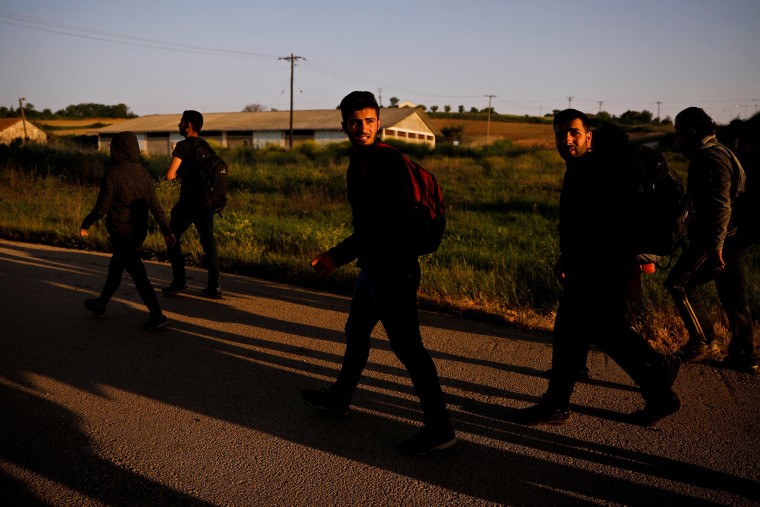ISTANBUL — Turkish authorities reported a seven-fold jump in the number of migrants attempting the dangerous sea crossing from Turkey to Greece in August.
This month to Aug. 28, 7,834 migrants and refugees were intercepted at sea, according to the Turkish Coast Guard. That compares to 1,311 during the same period last year.
In July, the number more than doubled, with 5,409 intercepted at sea compared to last year when 2,433 were picked up. Greece is the entry point to the Schengen Zone, an area compromising most of the European Union in which people can move from country to country without passport checks.
The year-on-year spike started in June with an increase of one-third, from 1,925 in June 2018 to 3,262 this June.
According to the United Nations, 174 migrants died or went missing making the crossing in 2018, compared to 57 so far this year.
The number of people attempting the perilous crossing usually goes up in the summer, but the latest jump came amid a crackdown on migrants in Turkey and intensified fighting in Syria.
The Istanbul governor’s office, connected to Turkish President Recep Tayyip Erdogan’s national government, announced in July that unregistered migrants in Istanbul had to leave the city and go to other provinces by August, although the deadline was later pushed back to October.
Since the announcement, police started detaining migrants and refugees.
The International Organization for Migration’s (IOM) spokesperson in Turkey Lanna Walsh said the group's workers, who operate alongside the coast guard, have noticed an increase in migrants rescued in recent weeks.
“Our teams that do work on the ground observed that many of the migrants trying to cross over last weekend… originated in Istanbul,” Walsh said.
Turkey has the largest number of displaced Syrians of any country, housing more than 3.6 million who fled the eight-year civil war. The country's interior minister last year said Syrians have had 380,000 babies in their adopted country since 2011.

Resentment toward Syrians has grown in Turkey, which is struggling with an economic downturn. A survey conducted at the end of 2017 by Istanbul Bilgi University found 86 percent of respondents wanted all Syrians to return home when the war ends.
While the Turkish Coast Guard’s figures show the number of people rescued or stopped from going to Greece, data collected by the U.N. shows that the number who were able to make it across also jumped, nearly doubling in July and August.
In August 2018, there were 3, 197 arrivals by sea to Greece while by August 25 2019 there were 5, 860 that month.
“It’s a serious increase,” said the spokesperson for the U.N.’s refugee body in Greece Boris Cheshirkov.
He added that the rise started in June at the same time that there was continued volatility in Afghanistan and Syria — the top two countries of origin for those who arrive.
Cheshirkov warned the numbers will likely go up in September and October, when arrivals traditionally peak.
Holding facilities on the Greek islands were already “far beyond capacity,” with 4, 000 people staying at one center with a capacity of 650, he said.
“If urgent action isn’t taken from the [Greek] government, then the situation might deteriorate even further,” Cheshirkov warned.
Senior Fellow at the Foundation for Defense of Democracies and former parliamentarian with the main Turkish opposition party CHP, Aykan Erdemir, speculated that Syrians were probably heading to the European Union because of increasing anti-Syrian resentment in Turkey, and a spike in fighting in the northwestern province of Idlib — the last major stronghold for the opposition.
“There is a growing crack down on Syrian refugees,” Erdemir said. “In general, Turkey has become a less welcoming environment for Syrian refugees, so this can be a push factor.”
